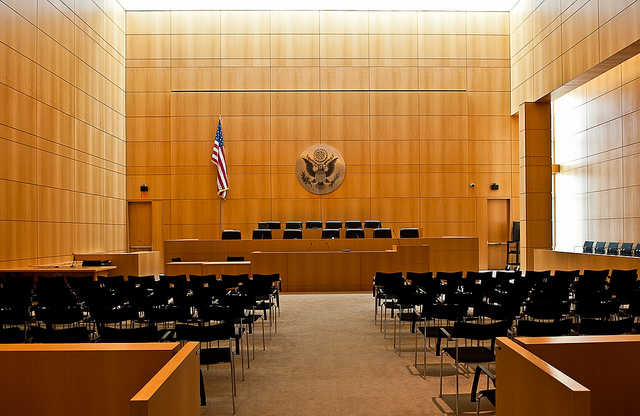This is an old revision of the document!
Table of Contents
Federal Magistrate Judge Charles F. Eick
Charles F. Eick was appointed as a Magistrate Judge for U.S. District Court for the Central District of California in 1988. He previously practiced civil and criminal litigation as a partner and associate with Mitchell, Silberberg & Knupp LLP in Los Angeles. He also served as a Judge Pro Tem for the Los Angeles Municipal Court.
Judge Eick received his undergraduate degree from Tulane University and his law degree from the University of Texas School of Law.
What's a Magistrate Judge
Magistrate judges are appointed to assist federal district court judges in the performance of their duties. While district judges are nominated by the president and confirmed by the Senate for lifetime tenure, magistrate judges are appointed by a majority vote of the federal district judges of a particular district and serve terms of eight years if full-time, or four years if part-time, and may be reappointed.1)
Duties
Magistrate judges generally oversee first appearances of criminal defendants, set bail, and conduct other administrative duties referred by district court judges. In civil cases, they will hear pre-trial motions, conduct settlement and pre-trial conferences, and may, on assignment, handle dispostive motions and, with the consent of the parties, may conduct the trial.2)
Referrals by District Court Judges
Civil cases are commonly referred to magistrate judges in two ways, called “A” and “B” referrals, under 28 U.S.C. § 636 (b)(1)(A) and (B). Under an A referral, a magistrate judge may issue orders on all non-dispositive motions, but under a B referral, the magistrate judge conducts all proceedings, issuing orders on all non-dispositive matters and giving the district judge a report and recommendation as to final disposition. The district judge may accept, reject, or modify the report and recommendation, and may send the case back to the magistrate judge for further action. The statute treats the following motions as “dispositive”:
For injunctive relief, for judgment on the pleadings, for summary judgment, to dismiss or quash an indictment or information made by the defendant, to suppress evidence in a criminal case, to dismiss or to permit maintenance of a class action, to dismiss for failure to state a claim upon which relief can be granted, and to involuntarily dismiss an action.3)
The Axanar Case
Though federal district court Judge R. Gary Klausner oversees the Axanar copyright infringement case, Eick was the magistrate to which Klausner assigned:
- Oversight of formal settlement proceedings between the defendants, Axanar and producer Alec Peters, and the plaintiffs, CBS and Paramount Pictures.
- The protective order Eick granted regarding the treatment of confidential information requested by all parties during discovery.
- The hearing on the defense motion to compel CBS and Paramount to produce documents Axanar’s attorney stated were essential to proving their fair use case. The studios’ attorneys maintain the records are either privileged, non-existent or irrelevant. Eick will recommend to Klausner whether to grant the motion.
Other Copyright Cases
Eick has considered other copyright cases, most recently a 2014 case involving a James Bond knockoff, a 2013 case in which the frontman for the rock band Lights Over Paris was charged with fraud, and threw out a lawsuit brought by a former production assistant for director Oliver Stone who alleged the Walt Disney Co. and ABC had stolen ideas from her screenplay for the show Ugly Betty.4)
Keywords

